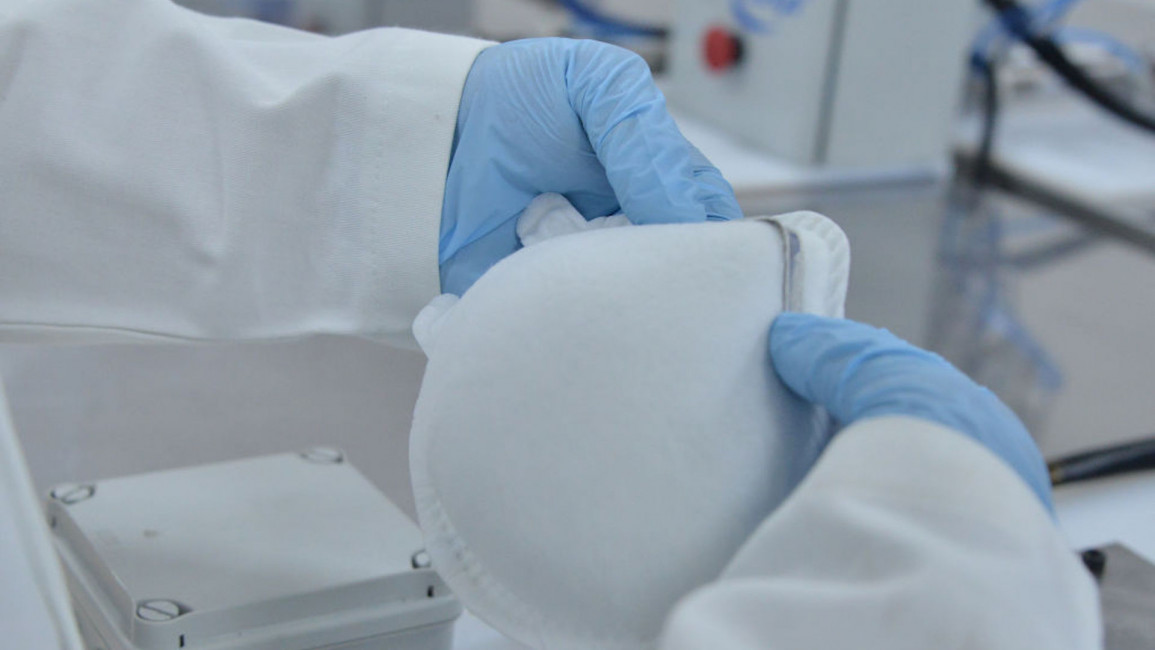Israel starts producing N95 masks ahead of virus resurgence
After imposing tough measures to tackle the Covid-19 illness, Israel has fared relatively well in the initial months of the pandemic.
More than 17,700 infections have been registered among a population of nine million, with nearly 300 deaths.
But as the country has gradually opened up in recent weeks, new outbreaks have occurred and the government has warned Israelis not to become complacent.
"We are preparing for a second wave of the virus," said Defence Minister Benny Gantz, announcing the country's first production line of N95 masks.
|
N95 masks offer a higher level of protection and are more sturdy than the simple medical masks worn by many Israelis.
Gantz said the local production "removes our dependence on foreign factors and contributes to the Israeli economy during a difficult period."
The new masks are being made in Sderot, a southern town near the Gaza Strip, using machines imported from China by the defence ministry.
Daniel Lev Israeli, owner of the Sion Medical Company which is making the masks, said his firm will be able to produce around two million a month.
"In the coming weeks the masks that will be used by medical teams will be Israeli N95 masks," he said.
Although Israel has experienced a comparatively low number of coronavirus cases, more than 120 schools reopened last month have since been closed again.
Read also: Amid crippling Israel blockade, Gaza factories roar back to life to make PPE
Hundreds of pupils have tested positive for coronavirus and nearly 17,500 pupils and staff are being quarantined after contact with those infected, according to the education ministry.
The pandemic is also affecting politics, with parliamentary employees told to stay home Thursday after a lawmaker contracted the virus.
Four fellow members of the parliament are in quarantine after Sami Abu Shahadeh tested positive, while parliamentary activities have been reduced to a minimum.
Follow us on Facebook, Twitter and Instagram to stay connected



![Squad incumbent Summer Lee has won her district's Democratic primary. [Brooke Anderson/The New Arab]](/sites/default/files/styles/image_330x185/public/2024-04/413898031_1041031157158522_8195934720767720634_n%20%283%29.jpg?h=ff8c3fa3&itok=75Sx6fbL)